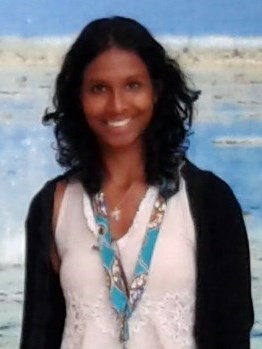If I had to describe in two words what my life has been after my PhD, I will say chaotic on the personal and health levels and also lucky on the professional level. My life has been somewhat chaotic after my Ph.D. since I fell ill and had an operation only 2 weeks after my defense (ironically the same day and time as my PhD defense). The lesson I learnt from this, is that I pushed myself too hard and that my health should be my first priority!
Navigating the world of postdocs and having a healthy work-life balance
Academia can be very stressful and competitive and postdoctoral positions are very often short-term contracts in varied cities/countries. It is expected that a postdoc can relocate every two years or so for each contract but that is not always possible when one has a family. I have started to consider myself as an expert in my field (say goodbye to the Imposter syndrome) and I try to find labs and supervisors who are willing to take me on board even if I cannot relocate my whole family. What COVID has shown us is that, unless we need to work in a laboratory setting, a lot of our research can be done remotely. Seeking understanding supervisors is very important if you want to have a healthy work-life balance. Putting your family and health first is recommended if you want to be in the right place mentally and emotionally. It will also be beneficial to your employer since you’ll be more productive if you’re happy in your life. I have talked to several other postdoctoral researchers who won the same fellowship as me (I should point out at this point that the current fellowship I’ve been granted, forces all postdocs to relocate to one specific region in France for 2 years). Most of these early career researchers have left their spouse/partner in a different city/country and have basically put their personal life on hold for 2 years. Most of them seemed grateful for the postdoc (since postdoc positions do not come by often), but at the same time, they are not happy personally since they are far away from their loved ones and have to travel back and forth every weekend/month to see their partner/spouse for a limited period of time. What we all have to realize is that we are not robots and have various other responsibilities outside of research and work. Forcing postdocs to relocate every few years is inconsiderate and it is up to you to make your voice heard and dare risk a position in order to have a fulfilling and balanced personal life. In most cases, I’ve found that if supervisors acknowledge your worth and value, they will allow you to have a healthy work-life balance and still want to have you onboard even if you cannot relocate.
Go after various opportunities
Unfortunately, a PhD is not enough in most cases to secure a permanent job in academia. Nowadays, I feel that completing several postdoctoral projects is also not enough. Obviously, the number and quality of publications are important (including your number of citations, H- and I- indices). I also feel that one should not limit oneself to a specific research project but should seek out collaborations to work/volunteer on other related/unrelated projects with other institutions and actively seek to build their professional network. There are various organizations/ working groups related to specific fields/topics where you can link with other early career and senior researchers. Nowadays, there are a lot of opportunities for early career researchers and twitter is a good venue to seek out these opportunities.
Never stop learning
Either you want to stay in academia or leave research, you can further develop your knowledge by following online courses. A lot of websites/ organizations offer free online courses in a wide range of topics. Following courses to improve or advance your knowledge will definitely help you in your work or to switch career if that’s your wish. I have also recently found that some Twitter groups offer free tutorials. It is so comforting to know that you are not alone out there and do not have to struggle alone if you do not know something.
Keep trying, do not give up (unless you believe that you have to change your career path!)
For me, Life after Ph.D. has shown me how RESILIENT I can be and has taught me patience. Obviously, not every grant proposal will be funded, not every publication will be accepted, not every postdoctoral position will be successful. What I’ve learnt is to pick myself up every time something does not work out and either start again or find alternative solutions. I always have plans A, B and C. Six months before the end of my PhD, I started writing various postdoctoral projects, applying for various grants and various postdoctoral positions. For my second postdoc, I started writing a project and applying for several grants 1 year before the end of my first postdoc. Whatever happens, you should always listen to yourself and only do what is best for you since you know yourself best and the quality of your work will depend on the quality of your personal life and health!
I finished my co-badged PhD between the University of Montpellier (France) and the University of Cape Town (South Africa) in 2019. Since, then, I’ve finished two postdoctoral projects and I am now on working on my third postdoc with the Université de Bretagne Occidentale under the Horizon2020 Marie Skłodowska-Curie fellowship. I am a member of DSBS since 2020.
Follow Angelee on Twitter

